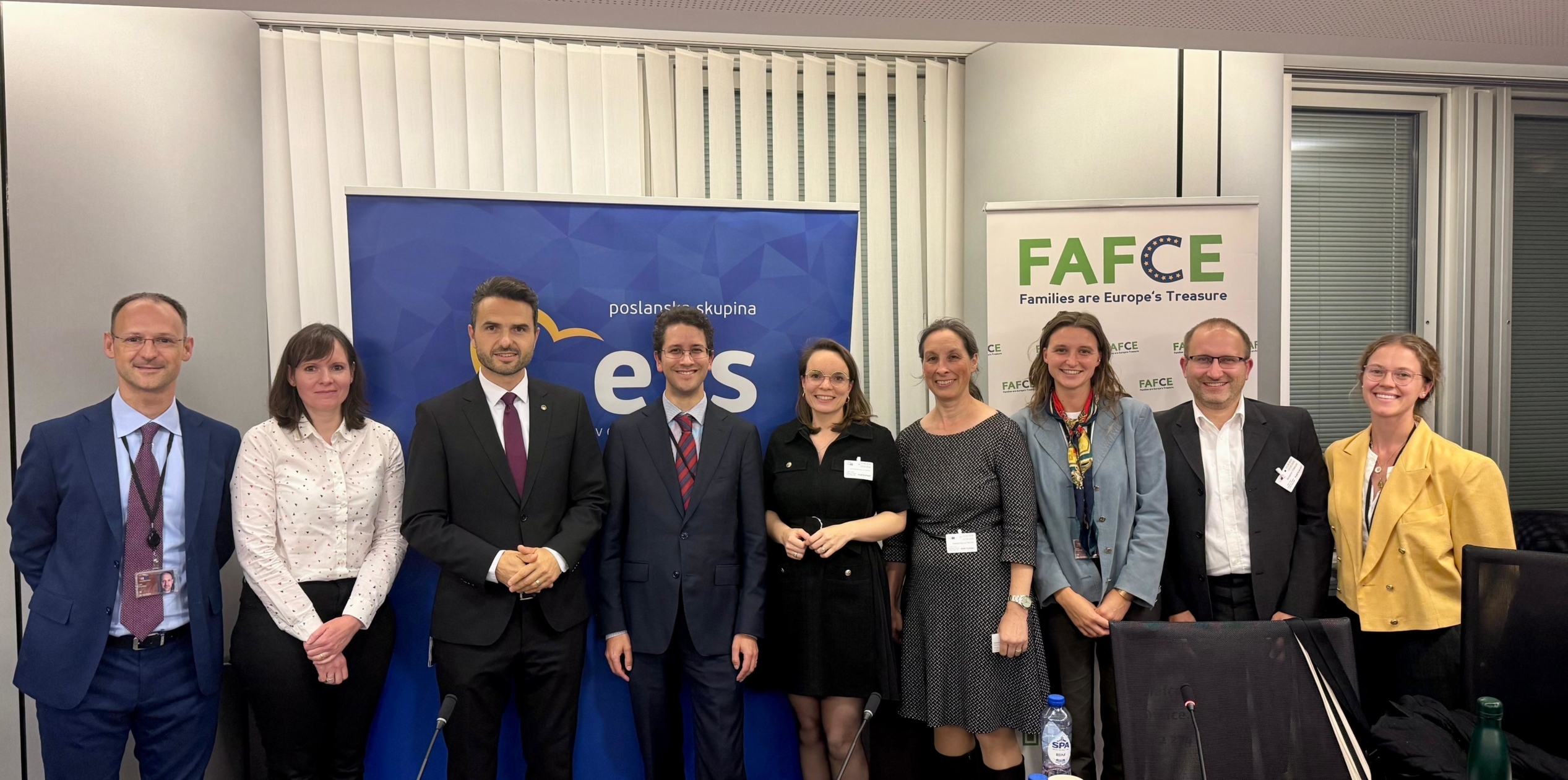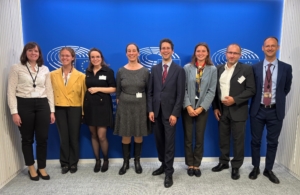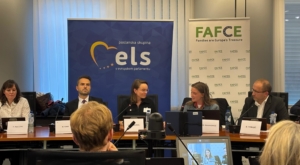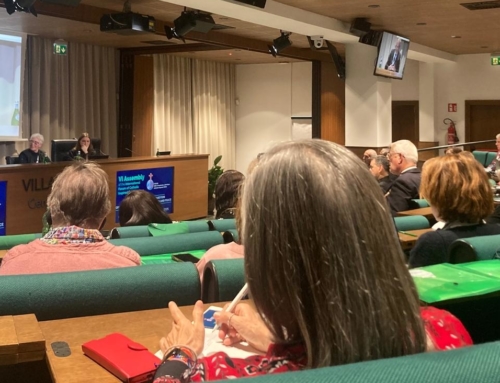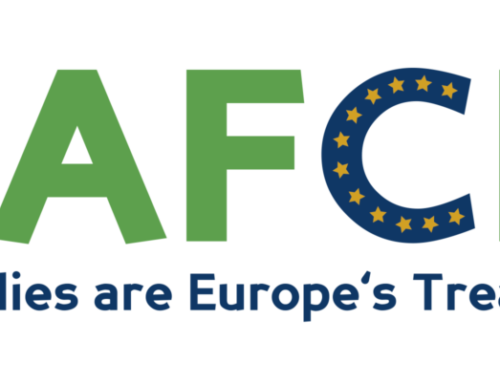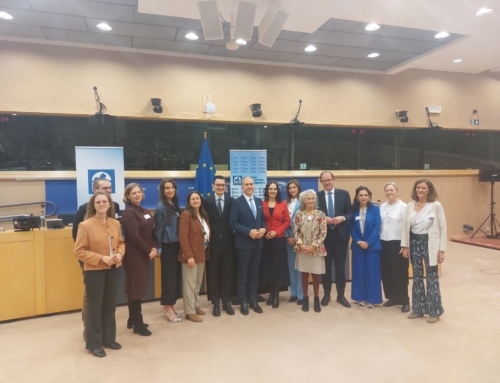Brussels, 25 September 2025
On the 23rd of September FAFCE co-organised a conference at the European Parliament on Protecting children from online threats, hosted by MEP Matej Tonin (EPP, Slovenia). Participants and Members of the European Parliament had the opportunity to exchange with experts and civil society and to discuss concrete actions that must be taken at the European level for a better protection of minors from digital threats.
This event was supported by the European Child Shield Platform, a network gathering legal and medical experts on pornography and more than 30 NGOs working in prevention and addiction support from 19 EU Member-States.
Mar Álvarez Segura, M.D., Ph.D, Child and Adolescent psychiatrist, exposed the negative effects of pornography on minors, highlighting how exposure can influence their emotional, cognitive, interpersonal and sexual behavior development. She also showed the parallels between the consequences of pornography use among children and adolescents and the post-traumatic symptomatology associated with child sexual abuse. She stated that “we have enough proof that pornography is harmful for children and adolescents” and mentioned that “good family functioning may have a protective effect by boosting self-esteem”.
Táňa Reháková from NePornu shared data and insights on pornography consumption among teenagers in the Czech Republic and brought attention to the problem of loneliness that is not only one of the reasons for watching pornography, but also one of its many negative impacts. She also concluded that “best prevention happens at home, therefore we need educated parents”.
Anne-Sixtine Perardel, Emotional and sexual health counsellor and sexologist, drawing on data from France and her extensive field experience said that “this is not a minor problem. It is a catastrophe, deeply harming entire generations of young people, adults, and couples — in France and all over the world”. She called for recognising the crucial role of parents, who as the first educators, need to be equipped with tools to accompany their children on this sensitive and often taboo subject and showed the essential role that schools can play in prevention.
Priscille Kulczyk, Research Fellow at the European Centre for Law and Justice, presented some positive steps that have been made in recent months in terms of protecting children online, particularly regarding age verification for accessing pornographic websites. She called on Members of the European Parliament to support the amendment to the Directive on Child Sexual Abuse Material (CSAM) that forces websites to put in place “robust and effective age verification tools to effectively prevent children from accessing pornographic content online”.
Matthieu Bruynseels, FAFCE Advocacy Director for EU Affairs, spoke about instruments in EU law that would limit the access of minors to online pornography, in particular about the Digital Services Act. He also pointed out what should be improved to make this access really impossible. FAFCE has long been urging the online platforms to effectively deny the access of minors to age-inappropriate content and online pornography as well as encouraging policymakers to empower parents to prevent, assess and remedy online risks in the education of their children.
The interventions were followed by an insightful exchange between the audience and panelists, concluded by MEP Matej Tonin who commented on the new perspectives emerging from the debate. He also reminded that we should not only depend on legislation, but as a society we need to educate kids about the online threats so that they can understand the tremendous side effects. He expressed hope and will to organise a follow-up event next year, highlighting that “such meetings give us courage that we are doing things for our kids and future”.
FAFCE would like to warmly thank MEP Matej Tonin for hosting the conference and supporting this important cause, as well as express deep gratitude to the Institut Integrum and other supporters of the European Child Shield Platform for their work on the protection of children from online pornography.
For the past decade, FAFCE has been committed on the need to protect children from sexual abuse and access to pornography. Through the advocacy work in Brussels and Strasbourg FAFCE has been calling upon the EU institutions, Council of Europe, and recently, also the UN, as well as numerous stakeholders and civil organisations to prioritise this issue and protect children from the harmful impact of pornography, as well as to recognise pornography as a public health issue.
For more information of the commitment of FAFCE for ensuring the safety of minors online:
The Council of Europe calls to protect children from online pornography (May 2022)
The Council of Europe condemns the harmful impacts of pornography (December 2021)
On #SaferInternetDay, we reiterate our calls for digital safety
FAFCE welcomes extension of measures for a better protection of minors in the EU
PRESS RELEASE I FAFCE welcomes steps towards a better protection of minors in the EU
FAFCE’s Public Intervention at the UN: Protecting Children from Online Pornography

